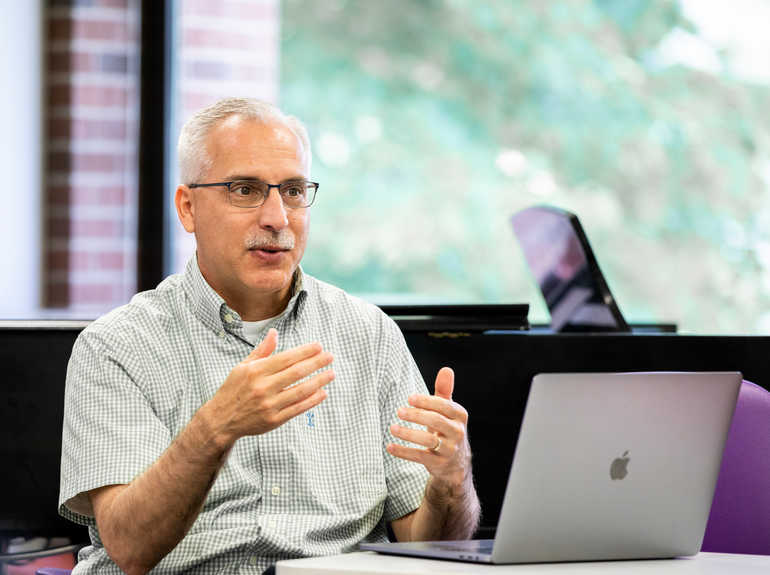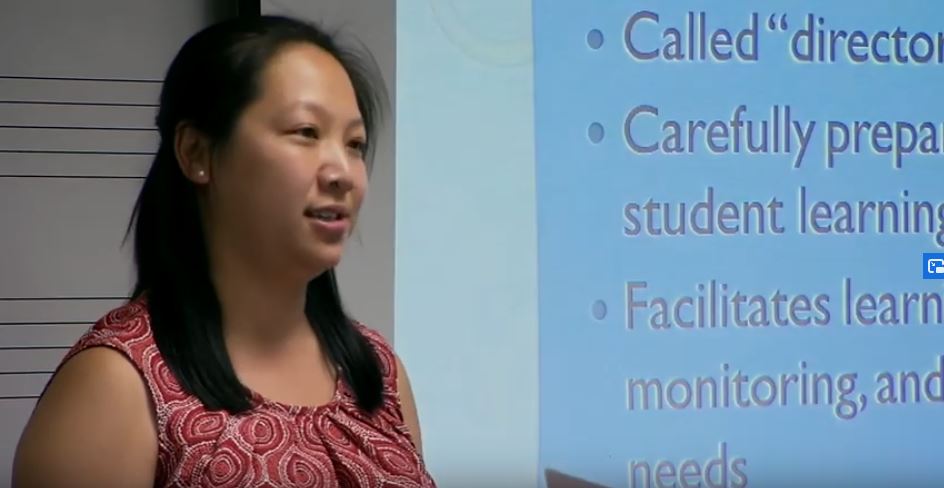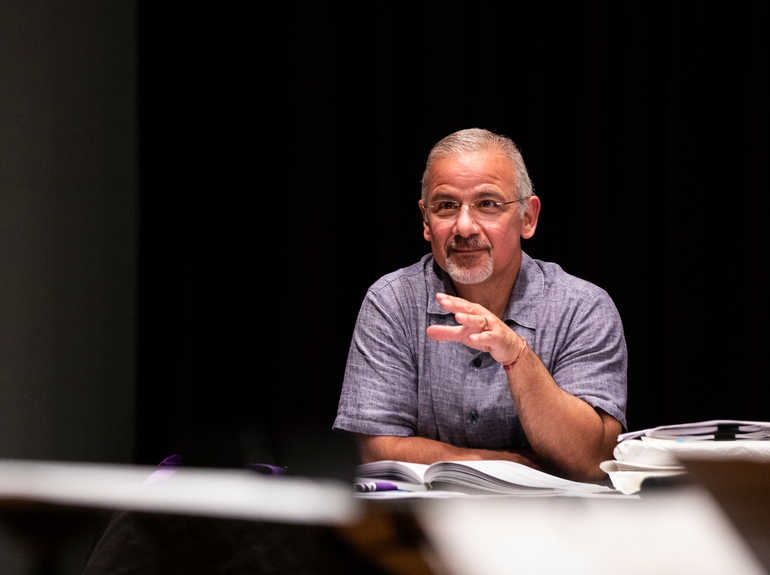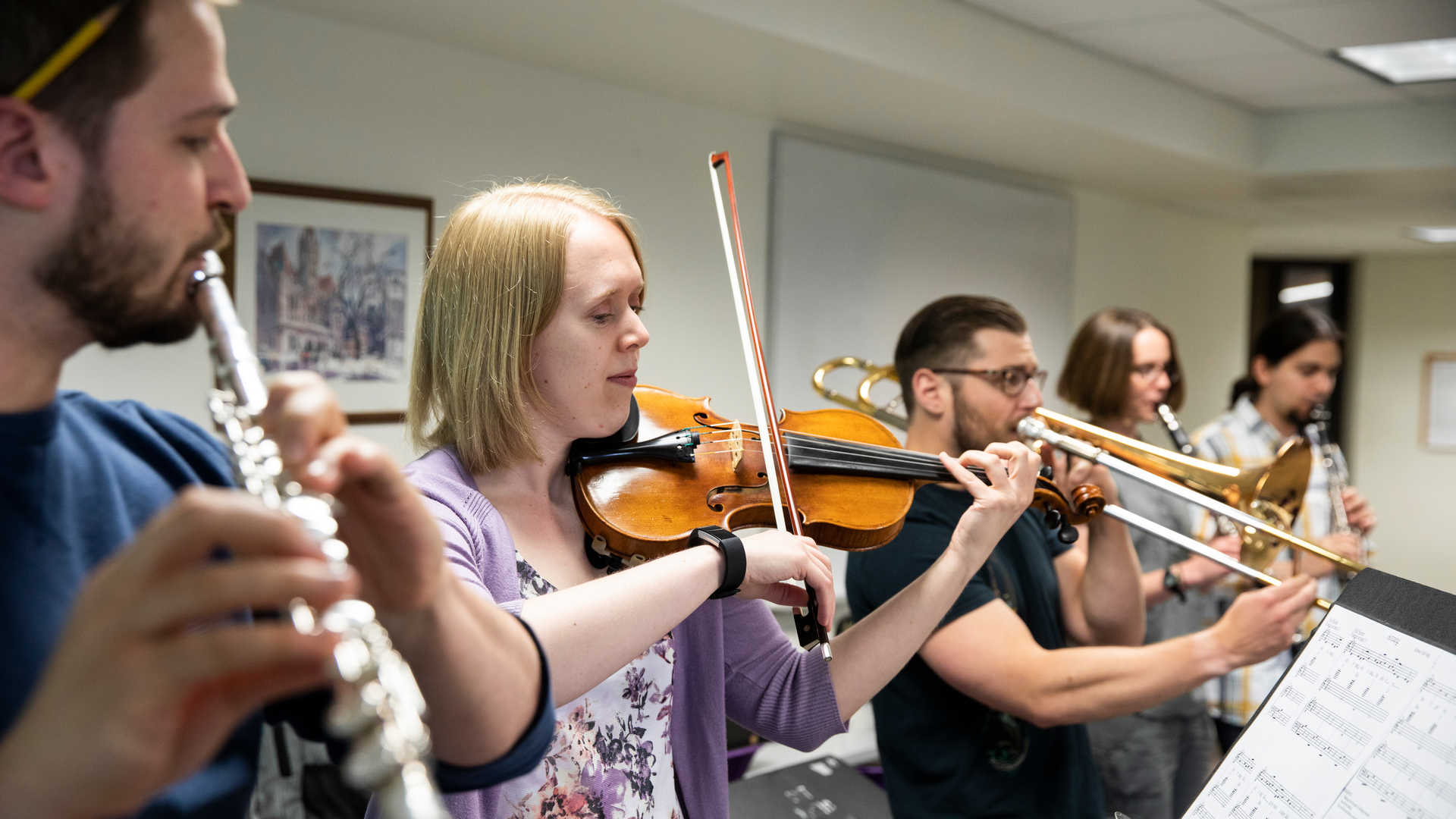
About the MA in Music Education Instrumental Concentration
The MA in Music Education Instrumental Concentration features a broad range of core courses balanced by requirements that apply to the instrumental experience. You will place an emphasis on practical application in graduate study, while collaborating music educators from a diverse array of musical settings and backgrounds.
Contact

Be a better teacher for your students
Every Day Matters
"St. Thomas' music education degree program is a great way to grow yourself as a musician and to help your students grow." - Vicki Tam-Anderson '17
Curriculum Details
Program Overview
The Master of Arts in Music Education curriculum requires 33 credit hours and consists of three elements:
- Core courses covering a variety of topics.
- A concentration to develop specific skills.
- A master’s thesis or final project to conduct applied research in music education.
Core Courses
Core courses provide opportunities for all master’s students to place their specific skills within a broader musical and educational context. The core consists of 17 total credits, to be completed as detailed below:
Required Core Courses (14 credits)
- GMUS 600 Introduction to Scholarship and Research Methods in Music Education, 3 cr.
- GMUS 601 Teaching and Learning, 3 cr.
- GMUS 608 Foundations of Music Education, 3 cr.
- GMUS 611 Perspectives in Music Theory, 3 cr.
- GMUS 750 Musicianship, 1 cr.
- GMUS 890 Master of Arts Final Project, 1 cr.
And, Choose One of the Following Core Courses (3 credits)
- GMUS 536 Smithsonian Folkways World Music Pedagogy, 3 cr. (offered every Summer)
- GMUS 612 Topics in Music History, Literature and Theory, 3 cr. (offered Fall of even years)
Instrumental Concentration Courses
Instrumental Concentration Courses (11 credits)
- GMUS 570-592 Performance Studies - Piano, 2 cr.
- Major Instrument 30-minute lessons, 1 cr.
- Secondary Instrument 30-minute lessons, 1 cr.
- GMUS 665 Instrumental Musicianship Pedagogy, 3 cr.
- GMUS 687 Advanced instrumental Score Study and Literature, 3 cr.
- GMUS 690 Advanced Instrumental Conducting, 3 cr.
Instrumental Electives
Instrumental Elective Courses (5 credits)
- GMUS 536 Smithsonian Folkways Certification in World Music Pedagogy, 3 cr.
- GMUS 537 Latin American Music, 2 cr.
- GMUS 544-xx Topics in Music Education, credits vary (advisor approval required)
- GMUS 651 Dalcroze Musicianship, 3 cr.
- GMUS 653 Diverse Perspectives, Instrumental Ensembles, 2 cr.
- GMUS 606 Realizing Diversity in Music Education, 3 cr.
- GMUS 670 East Asian Music Cultures, 2 cr.
- GMUS 671 African Music Ensemble, 2 cr.
- Other courses considered for elective credit (advisor approval required)
Other Degree Requirements
- Music Diagnostic Exams
- Oral Comprehensive Exam
Program Overview
The Master of Arts in Music Education curriculum requires 33 credit hours and consists of three elements:
- Core courses covering a variety of topics.
- A concentration to develop specific skills.
- A master’s thesis or final project to conduct applied research in music education.
Core Courses
Core courses provide opportunities for all master’s students to place their specific skills within a broader musical and educational context. The core consists of 17 total credits, to be completed as detailed below:
Required Core Courses (14 credits)
- GMUS 600 Introduction to Scholarship and Research Methods in Music Education, 3 cr.
- GMUS 601 Teaching and Learning, 3 cr.
- GMUS 608 Foundations of Music Education, 3 cr.
- GMUS 611 Perspectives in Music Theory, 3 cr.
- GMUS 750 Musicianship, 1 cr.
- GMUS 890 Master of Arts Final Project, 1 cr.
And, Choose One of the Following Core Courses (3 credits)
- GMUS 536 Smithsonian Folkways World Music Pedagogy, 3 cr. (offered every Summer)
- GMUS 612 Topics in Music History, Literature and Theory, 3 cr. (offered Fall of even years)
Instrumental Concentration Courses
Instrumental Concentration Courses (11 credits)
- GMUS 570-592 Performance Studies - Piano, 2 cr.
- Major Instrument 30-minute lessons, 1 cr.
- Secondary Instrument 30-minute lessons, 1 cr.
- GMUS 665 Instrumental Musicianship Pedagogy, 3 cr.
- GMUS 687 Advanced instrumental Score Study and Literature, 3 cr.
- GMUS 690 Advanced Instrumental Conducting, 3 cr.
Instrumental Electives
Instrumental Elective Courses (5 credits)
- GMUS 536 Smithsonian Folkways Certification in World Music Pedagogy, 3 cr.
- GMUS 537 Latin American Music, 2 cr.
- GMUS 544-xx Topics in Music Education, credits vary (advisor approval required)
- GMUS 651 Dalcroze Musicianship, 3 cr.
- GMUS 653 Diverse Perspectives, Instrumental Ensembles, 2 cr.
- GMUS 606 Realizing Diversity in Music Education, 3 cr.
- GMUS 670 East Asian Music Cultures, 2 cr.
- GMUS 671 African Music Ensemble, 2 cr.
- Other courses considered for elective credit (advisor approval required)
Other Degree Requirements
- Music Diagnostic Exams
- Oral Comprehensive Exam
Our Students and Alumni
Faculty





